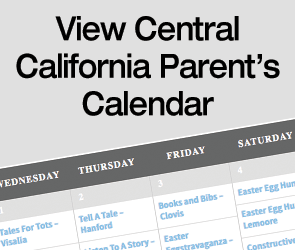Online Etiquette for Kids

By Jan Pierce
We all recognize the importance of teaching the younger generation basic manners and respectful behavior. From the time our children are tiny tots we encourage the use of “please” and “thank you.” We teach our children to make eye contact when they speak with others and how to shake hands when they meet someone. We teach them table manners and how to order in a restaurant. And we cringe when children haven’t been taught and display less than acceptable manners in public.
Today’s Technology Challenges
But we’ve entered a new era—one in which even adults don’t seem to know the proper boundaries and guidelines for good behavior. We’ve entered into a world of virtual reality. And without some sense of priorities and good manners related to our smart phones, tablets, and computers, we’re caught in the trap of addictive, out of control behaviors. We allow technology to manage us rather than the other way around.
If you think otherwise, just take the time to observe people’s behavior in any public location. Watch the behavior of couples at a restaurant. Watch a group of teens. You may notice that people text and talk on their phones, even in church services or during meetings. Using social media sites during work hours is a huge problem in the workplace. The temptation to pull out our phones and enter the virtual world rather than engage with people in real time is great.
What’s Been Lost
Most of us can think back to times when life was slower-paced. We expected face to face communication to dominate and there were no devices tempting us to retreat into the virtual world.
Children played with their own creativity fueling their games. They built forts and climbed trees. They interacted with the natural world. Indoors they played board games and enjoyed drawing pictures. They didn’t rely on computerized games to entertain them.
Much of the responsibility for monitoring and limiting our young people’s screen time must fall on our shoulders. We understand the dangers of addictive behaviors and see the results of too much computerized play. We recognize the lethargy and the glazed eyes of children who are allowed unlimited access to television, movies, and video games.
Common Sense
We all realize that computers are here to stay. And they offer a wonderful world of information at our fingertips. Children will use computers and play computer games and they’ll benefit from their use. The problem comes when common sense rules are not put into place.
Children often have trouble with self-control when they really love something. And computer games are lots of fun. It’s up to the adults in their lives to set reasonable limits to protect space for other kinds of entertainment and play. We wouldn’t allow our children to eat twenty cookies. It’s just as important for their emotional and psychological health to have limits on use of technology devices.
WHAT TO TEACH YOUR KIDS ABOUT TECH ETIQUETTE?
The Real World vs. the Virtual World
It’s difficult for children to separate the real world from the virtual one. Kids will need to do their school work online. They’ll need to be able to type and do computer projects. They’ll be whizzes on the computer and not see any reason to “unplug.”
We adults know there is a cost to living too much of our lives in the world of social media or video games. It means kids are not doing lots of other things such as chores, outdoor play, reading, and the like. There are only so many hours in a day. Adults need to step up and set boundaries for use of technology devices.
We need to teach and model the value of “being in the moment.” We need to “be there” when we’re with others—truly communicate with the physical bodies in our presence and not use that time to communicate virtually with others.
One of the reasons many adults allow overuse of technology is the fact that the children are totally engaged while they do it. They’re quiet and out of the way. They don’t cause any trouble when they’re using a screen. Beware. It’s worth the trouble to disengage them and direct them to a healthier use of their time.
Balance in a Healthy Life
Too much of any good thing creates a life out of balance. Some children are over-scheduled with sports and other activities. They don’t have time for school work and don’t have time for unstructured play times. We need to remember that play—especially unstructured play, in which children use their own creativity to make their fun—is the work of childhood. It’s especially important in the younger years. Children are in danger of losing out on those healthy play experiences. When children spend several hours a day on their screens, they have no time left for other activities.
Online Safety
We want to teach our kids about online safety. We should be sure they have procedures in place to engage online without exposing their identities and locations. They need to know when to post anonymously and how to set privacy settings. We need to show them ways to protect themselves from information and data that is unfit for them. We need to warn them about online predators posing as safe friends. Parental locks should be a part of online devices.
Kindness Should Rule the Day
One of the most important values we must teach children is the power of words. Cyber-bullying is a huge problem for youngsters and we need to prevent it. It’s important to teach our children to refrain from replying to others with anger, rudeness, or in a way that uses abusive or negative language. And they need to recognize when a conversation is heading in the wrong direction. It’s hard to disengage from a conversation, but our children need to know when and how to simply exit the situation.
Online etiquette will be an ongoing conversation. It’s important that all adults in a child’s life take the initiative to model good behavior when online and when in social settings.
And when we’re having fun doing real-life things with our children, they’ll learn that the real world is a pretty great place to be.
Central California Parent is the #1 FREE parenting resource for Central Valley families.
Stay connected with Central California Parent throughout the month!
• Like Us on Facebook
• Follow Us on Instagram
• Follow Us on Pinterest
• Follow Us on Twitter
• Subscribe For our Family E-Newsletter
• Read Our Digital Edition
• Enter for our FREE Giveaways








